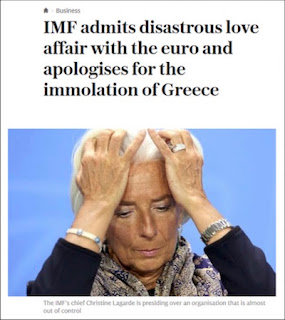Andreas Georgiou, former chief of Greece’s statistical agency, and two colleagues are to face trial on criminal charges of undermining the “national interest” Greece gained entry to the eurozone by understating the budget deficit for 1999, the benchmark year to qualify for admission, then continued to massage the figures, brushing aside repeated warnings from Eurostat about the methodology used by the government’s statistics unit. FT 14 August 2016 – Vi vet alla nu, och vi visste alla då, att Grekland fuskade med sin statistik berättar Pascal Lamy, WTO-chefen som på nittiotalet var EU-kommissionens ordförande Jacques Delors högra hand. Källa: Teresa Küchler, SvD 29 februari 2012 Jag erinrar mig då när jag skrattade, på ett SNS-möte, i min lilla värld, fjärran från Bryssel. Jag är väl inte så mycket skickligare ekonom än dom andra i salen, från Riksbank och Finansdepartement med mera. Dom förstod nog också. Men dom teg. Greklands BNP krympte med 2 procent i fjol. I å
